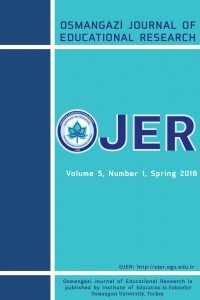
Osmangazi Journal of Educational Research
Yazarlar: Nida BAYINDIR, Levent SEVİ
Konular:Eğitim, Bilimsel Disiplinler
Anahtar Kelimeler:Web-based education process,Education rights and freedoms,Judicial/administrative crimes.
Özet: Within the current pandemic environment, distance education has become a process where those who teach and learn by using information technologies come together in virtual classrooms regardless of location. However, users inevitably face ethical and security problems. Therefore, a teacher who uses information technologies should be aware that they can negatively affect the individual and the society. The study covers the descriptive analysis of crimes regarding violation of education and training rights in the 2019-2020 academic year with document analysis technique. In the study, by examining the constitution, law, regulation, declaration, international treaty and contract, statutes, regulations, customs, scientific opinions, judicial decisions, etc. that guarantee the rights and freedoms related to education, the articles concerning obscenity, insult, privacy, the right to education and freedom and limits of communication were taken as themes, and some judgments were made. These articles formed the main data source. The study is limited to the articles of law examined on education rights and freedoms and the possible participant words and behaviours on the web. The validity and reliability of the study were carried out by seeking expert opinion. The study is important in terms of the awareness of education stakeholders about possible judicial/administrative crimes related to education rights and freedoms in web-based applications. The results showed that both teachers and students may display negative behaviours that prevent students' education rights, restrict communication freedom, violate family privacy, involve obscenity and insult, etc. Thus, it is recommended that cyber awareness training should be given to teachers about data privacy and behaviours.